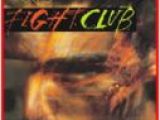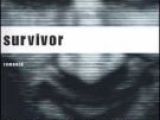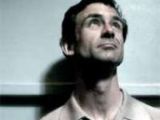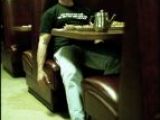Chuck Palahniuk was born in Portland, Oregon in 1962. There are no chances he'll ever get a Nobel Prize for Literature but he's one of today's best-est authors.
In the early '90s Brett Easton Ellis had emerged as voice of the X Generation, talker in the name of the lost, infatuated, drug-charmed and abused generation that grew and wasted their adolescence during the '80s. His novels were 100% shocking and totally stylish. 1990's American Psycho caused uproar of protest against the utter violence he graphically described. His main character, Patrik Bateman, is a crazed yuppie who from time to time suddenly snaps out of control and ferociously murders random people who he knew or not.
Ellis' style could rate his books as literature but couldn't minimize the impact of the acid social satire he marvelously uses to depict the dazed and confused upper class of New York's socialites and brokers.
Six years after, just when everybody managed to come to terms with the new wave of American literature, one 34 year old author from Oregon published one acclaimed by critics but un-noticed by most of the readers novel. The tile "Fight Club" was clear enough to keep away the Sandra Brown readers but catchy enough to get a predominant male audience ready to buy the book.
It was his literary debut but not his first novel. Previously to being given the green light for Fight Club his first writing was considered far to offensive by publishers and most probably anyone else would have totally given up. Chuck Palahniuk didn't give up his dreams of becoming an author and his insistence paid up.
As soon as 1999 he publishes another novel, Survivor, and succeeded to get his editor and publishing house to come to terms with his first novel (unanimously rejected) and finally print it. So Invisible Monsters reaches out to all those thrilled by Fight Club. The movie. As David Fincher adapted for the big screen the story of Tyler Durden something awkward happened: overnight Palahniuk found himself as the center of a cult and as the movie became more and popular (especially after being released on DVD).
What followed is more than obvious: literary fame, controversy, an ever growing cult as a fan base, and, of course some more books: Lullaby and Diary.
Chuck Palahniuk is relevant for today's world as spokesman of the unspoken people, places and events. And some argue that the things he puts in his novels are not known to the world because actually nobody wants to know about the deep dark and hopeless underbelly of our society. And, as a matter of fact some consider that it's not something one should ever need to know.
It's the little things that Palahniuk conglomerates in order to build up a bizarre yet strangely familiar structure. What he does and the thing that causes his readers' emotional discomfort is telling the truth about the things nobody cares about or notices.
There are the realities that are not from a parallel universe: men fighting at night in empty parking lots just to feel alive (Fight Club), former models slowly poisoning their lovers with hormones just because they love them too much (Invisible Monsters), the sole survivor of a strange Christian cult becoming a fake TV messiah (Survivor), or a sex addict faking choking to death in restaurants in order to get the other clients save him and send him checks (choke). What is not remarkable about Palahniuk's dysfunctional, misfit and lost characters is their almost divine grace. Because at one moment or another of the novels the reader suddenly realizes that things are deeper than they seem: the fakers, addicts, murderers are in fact the only one that have nothing to lose and sacrifice themselves for the others.
The "all singing all dancing crap of the world" (as Palahniuk defines through Tyler Durden his characters) are able to save the others. Or at least to give them the feeling that there is still salvation possible and available for everyone. Some readers saw in Palahniuk a new and bitterer Kurt Vonegutt. And yes, they are right: the future is non-existent to the main characters of Palahniuk Land, an empty devastated and decayed Disney Land inhabited by brain dead zombies.
The nihilism comes hand in hand with sarcasm and very hard to cope with humor. But it also comes as the only result of Palaniuk's greatest quality and, meanwhile, most severe issue: lucidity that drives his fictional alter-egos to sink into the glamour of the world. You are nothing and there is nobody to watch you, to care for you. The loneliness of the misfits that patrol the edges of the civilizations is in fact the loneliness of the modern era human being. And there are things to learn: that the others need to believe they still have got something to hold on even if they don't. That everything and anything leads to a disaster that no one can prevent but some can foresee. That glitter is as powerful as putrefaction, just because it's most often used to cover it.
All these 871 words just because while reading Invisible Monsters I needed to take some time off far from the book. The publishers were right; it is one hell of a gut drenching piece of literature. And sadly, the only literature that isn't totally brain dead has to be so strong that using "hardcore" to describe it would be a sort of understatement.
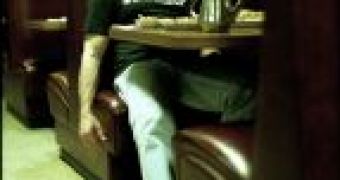
 14 DAY TRIAL //
14 DAY TRIAL // 
